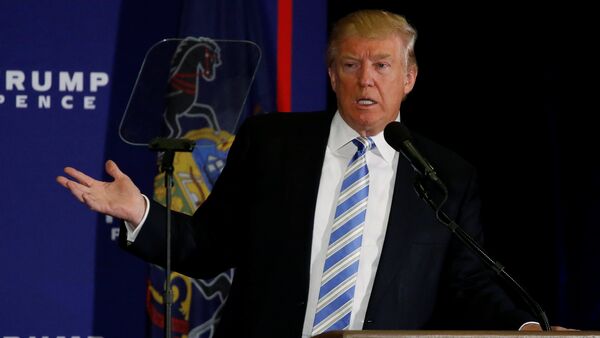WASHINGTON (Sputnik) — On Monday, Trump said in a video on YouTube that he would withdraw from the Trans-Pacific Partnership (TPP) free trade agreement and focus on negotiating "fair" bilateral trade deals that will bring jobs back to America.
"Trump’s concept [of fair]… implies that US partners will give US firms far larger new access than vice versa. In other words, more new US exports than new US imports," Hufbauer said on Tuesday. "This change will not be easy to sell to potential US partners."
The concept of reciprocity, Hufbauer added, historically the touchstone for bilateral trade agreements, means that each country makes concessions that give the partner "equivalent new access to its markets."
With respect to Trump’s decision to walk away from the TPP agreement, Hufbauer claimed, the United States will be sacrificing substantial economic benefits that parties to the treaty could have realized.
"The United States alone stands to lose about $130 billion a year, about 0.5% of US GDP in 2030, when the TPP would have been fully phased in," Hufbauer concluded.
The TPP would join the United States with 11 Pacific Rim nations in a deal to lower tariffs and other trade barriers on thousands of goods and services. The participant countries in the TPP account for about 40 percent of the global economy.
TPP critics have argued that the trade deal will only benefit multinational corporations while eroding the US manufacturing sector.
Critics claim the agreement will weaken safety regulations and undermine labor, environmental and human rights.





